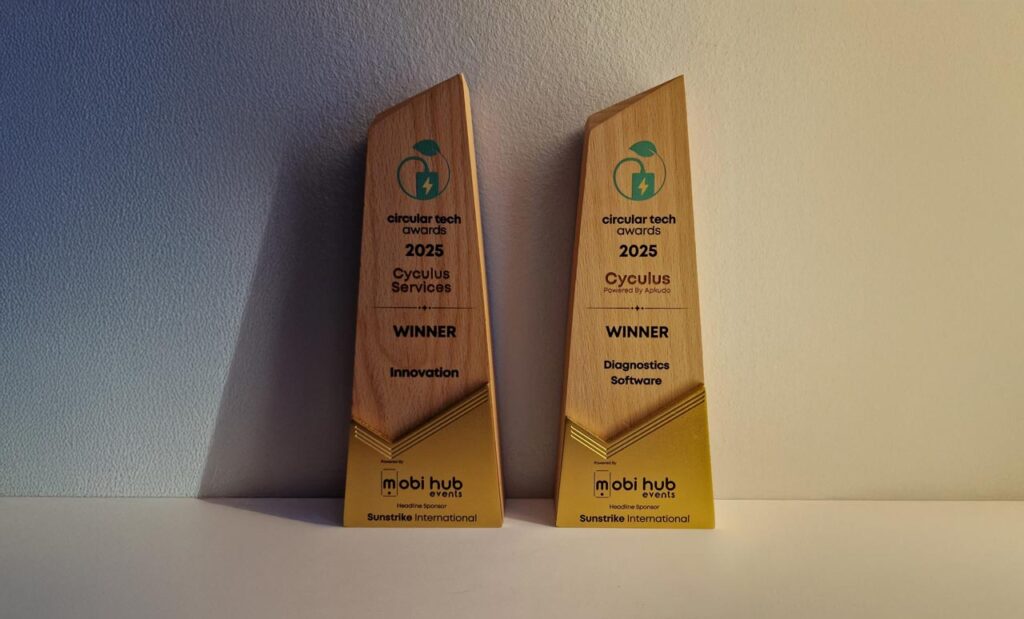
We’re delighted to share some incredible news from Berlin, where Cyculus proudly claimed not one, but two prestigious awards at the Circular Tech Awards 2025. As a Circular Tech Awards Winner, Cyculus was recognised in front of an audience of more than 250 guests, including leaders from across the tech, telecoms and sustainability sectors, taking home the trophies for both the Innovation and Diagnostics categories, a clear signal that our approach to automated device processing is making a meaningful impact.
Winning the Innovation Award affirms our belief that automation and AI will define the future of circular electronics. At Cyculus, we’ve built a platform that offers more than just testing, it delivers full-stack, precision-driven, end-to-end processing of used devices at scale, establishing us as a tech awards winner in the circular tech field.
Our state-of-the-art facility in Germany features a nine-stage processing line powered by Apkudo technology, combining robotics, vision systems, AI-driven diagnostics, and real-time reporting. Whether it’s smartphones, tablets, or smartwatches, every device entering our system is handled with unmatched consistency and care, helping partners reduce waste, cut costs, and increase resale value with confidence.
The Diagnostics Award recognised our ability to go beyond traditional device testing. While many platforms focus on pass/fail outcomes, Cyculus, as a tech awards winner, uses controlled environments, intelligent tools, and data-driven analysis to deliver richer diagnostics that drive smarter business decisions.
Our audio cell, for example, uses calibrated external speakers and microphones to detect nuanced faults, an impossible task in a noisy warehouse. Our display testing captures detailed defect data, informing repair decisions rather than guessing. We also generate up to 14 high-resolution images per device, supporting resale listings and quality assurance.
These awards mark an important milestone in our journey, and a wider shift in the industry. As circular technology gains momentum, stakeholders across the chain, from resellers and insurers to OEMs and marketplaces, are looking for trusted, intelligent, and scalable partners. This important shift is underscored by the Circular Tech Awards, which we proudly won.
At Cyculus, we’re proud to be leading the charge.
🔗 Learn more about our award-winning services
At Cyculus, we’ve always believed that technology should drive progress in the circular economy, and our partnership with Apkudo proves exactly that. We’re delighted to see Apkudo highlight our journey on their website — a testament to what happens when innovation meets purpose.
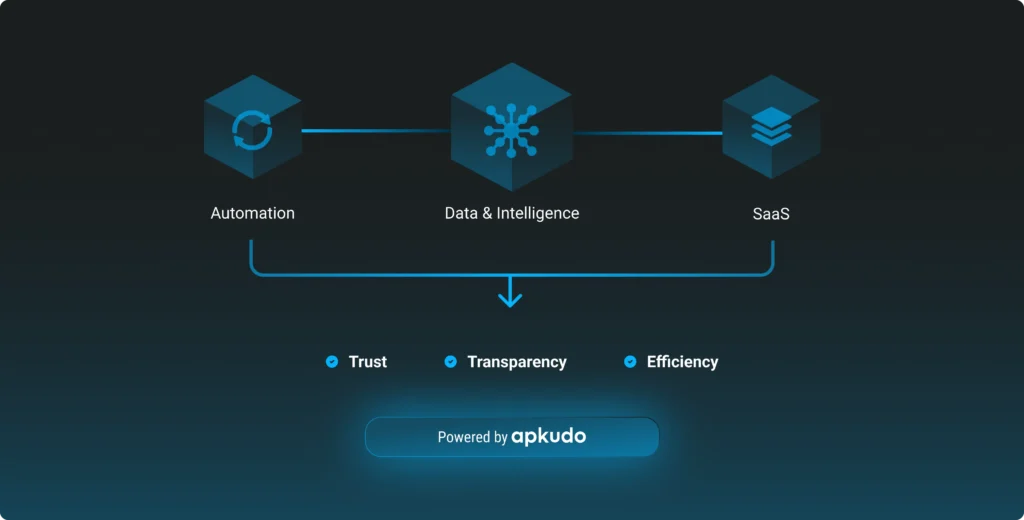
Apkudo’s feature on Cyculus celebrates a shared vision: creating a future where devices are tested, graded, and recirculated with unmatched precision. Together, we’re demonstrating that advanced robotics, AI-driven analytics, and automation can transform how pre‑owned devices are processed.
“Being powered by Apkudo allows us to deliver consistent, transparent, and scalable results for our customers — setting a new benchmark in device processing.”
— Fergal Donovan, CEO of Cyculus Services GmbH
The article showcases how Cyculus has embraced Apkudo’s cutting‑edge platform to drive efficiency and sustainability across Europe. Here’s why it matters:
Apkudo’s partnership with Cyculus underlines that our Device Processing as a Service (DPaaS) model is redefining standards in the secondary market. From insurers and operators to resellers and OEMs, our partners can now rely on scalable technology without the need for heavy capital investment.
Being featured on Apkudo’s site isn’t just a milestone — it’s a signal of where the industry is heading. Together, we’re innovating, automating, and recirculating to build a smarter, greener future for mobile devices.
👉 Read the full feature on Apkudo’s website here.
If you’d like help unlocking the full value of your device inventory, let’s talk. We’re ready to show you what’s possible when your business is powered by Cyculus — and powered by Apkudo.
At Cyculus, delivering high-quality, efficient, and reliable device processing services is at the heart of everything we do. Behind the scenes, a key part of that success is our partnership with Apkudo, the technology provider that powers our fully automated robotic line.
Apkudo doesn’t just deliver the automation — they deliver peace of mind. With two dedicated engineers based full-time on-site at Cyculus, Apkudo ensures that our robotic line operates with maximum uptime, precision, and consistency. These engineers are more than technicians — they are an integral part of our operations team, working side-by-side with us every day to ensure smooth running, rapid troubleshooting, and proactive maintenance.
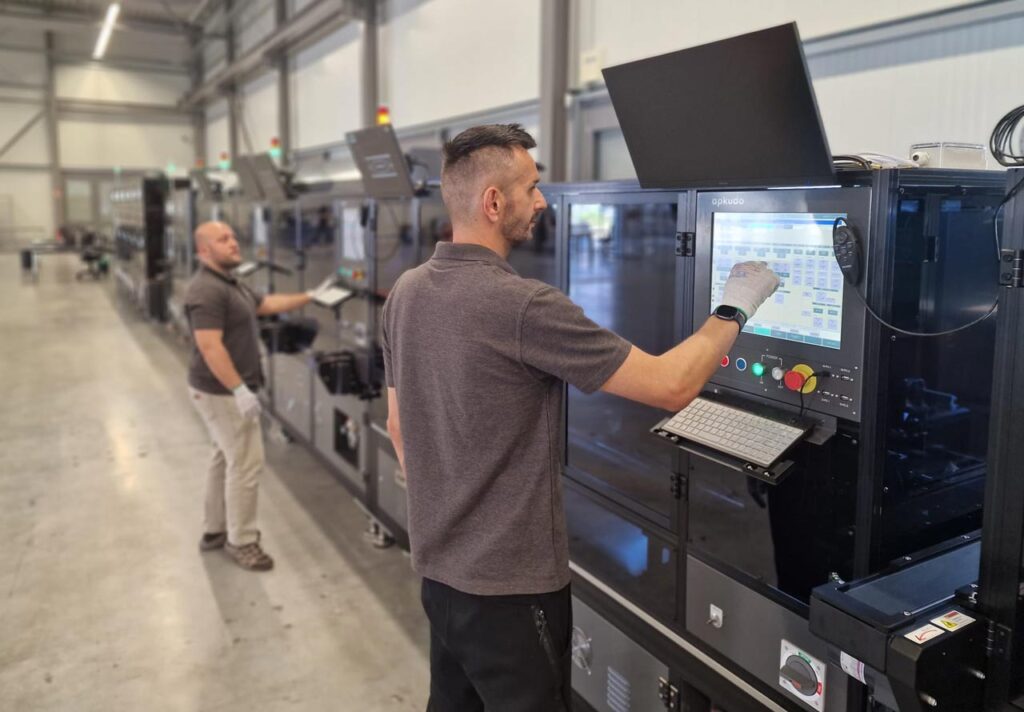
This level of embedded support is a game-changer. It means that Cyculus can focus on what we do best — delivering exceptional service to our customers — while Apkudo ensures the technology behind it all runs like clockwork.
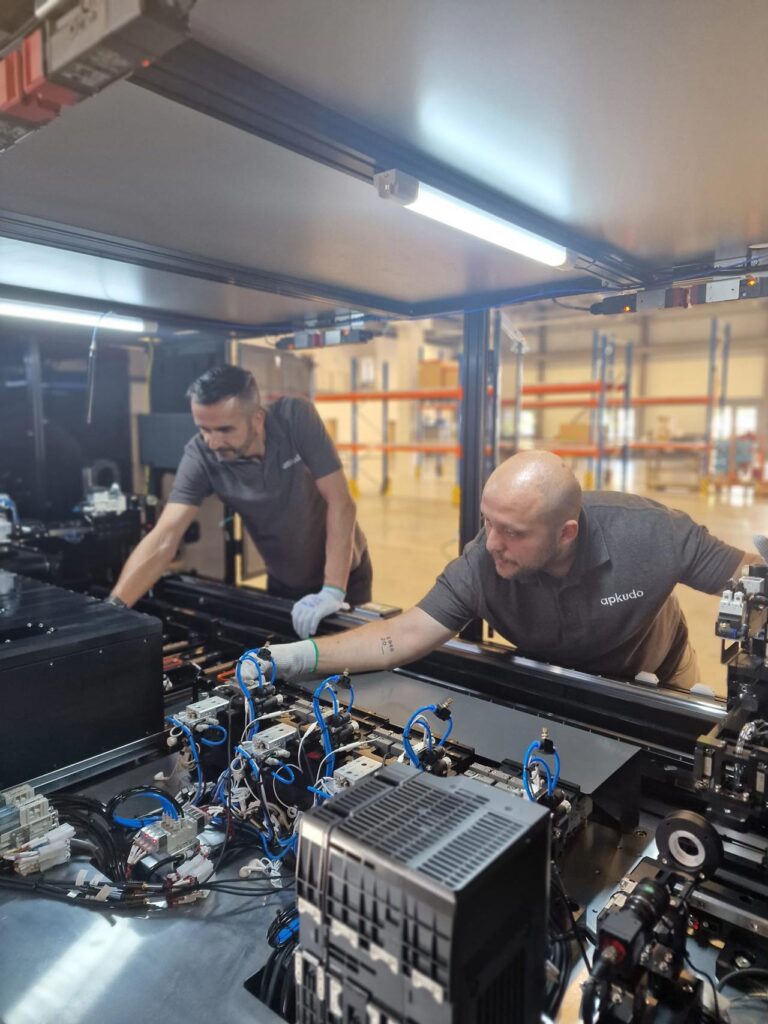
In a high-volume, high-precision environment like ours, even minor disruptions can have a ripple effect. Having Apkudo’s expert engineers on-site ensures that we stay ahead of potential issues and maintain the speed, accuracy, and reliability our clients expect.
It’s a partnership built on trust, expertise, and shared commitment to excellence.
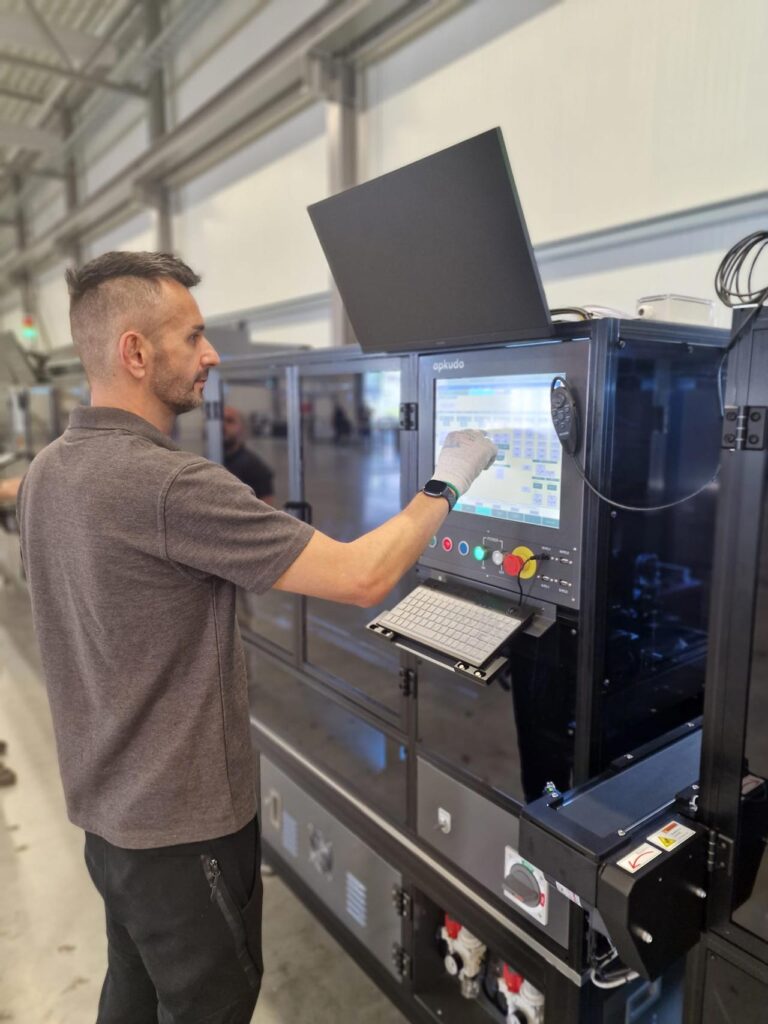
To the Apkudo team — thank you for being such a vital part of the Cyculus journey. Your dedication, technical skill, and collaborative spirit make a real difference every single day.
Here’s to continued innovation, seamless operations, and delivering the best possible outcomes for our customers.
#Automation #EngineeringExcellence #TechPartnership #Apkudo #Cyculus #InnovationInAction #Robotics #DeviceProcessing #OperationalExcellence #Teamwork
Understanding the refurbished phones definition is key to recognising their value. A refurbished phone is a pre-owned smartphone that has been inspected, repaired if necessary, tested, and restored to full working condition before being resold. Refurbished phones are often cleaned, reset to factory settings, and may even come with a warranty—making them a smart, sustainable, and cost-effective alternative to buying new. This refurbished phones definition helps clarify their advantages.
While both are previously owned, there’s a key difference:
Refurbished devices can come from customer returns, demo units, lease trade-ins, or warranty replacements. It’s essential to understand the refurbished phones definition to avoid confusion between used and refurbished options.
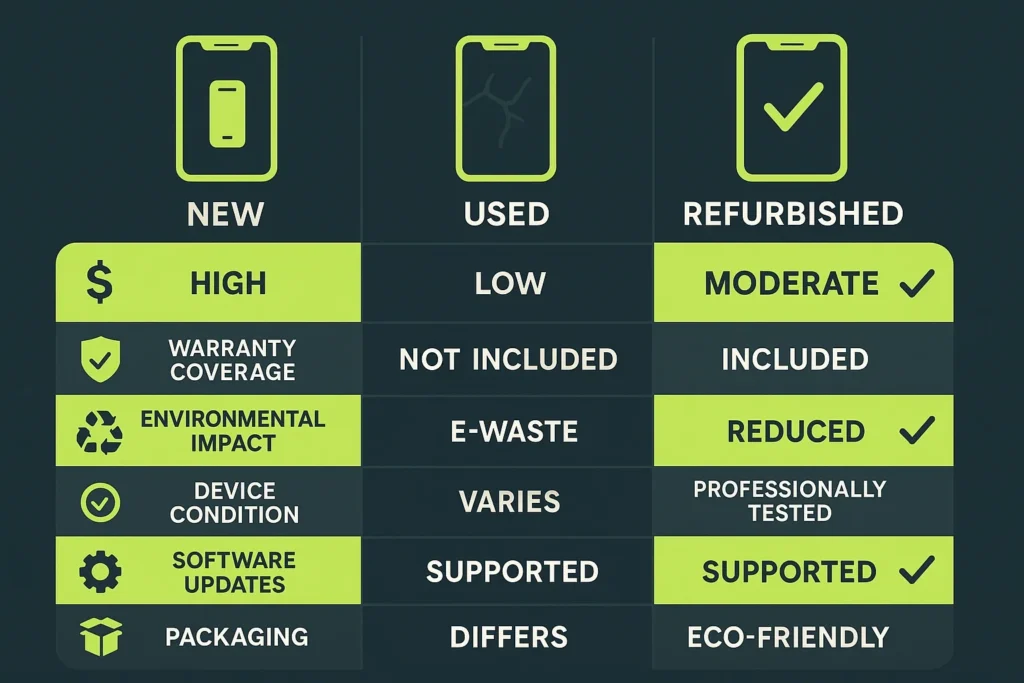
Refurbished phones may be processed by:
At Cyculus, our refurbishment process goes beyond pass/fail checks. Using robotics and AI, each phone is put through over 60 functional tests, cosmetic grading using high-definition imaging, and detailed reporting—offering unmatched consistency and accuracy for the circular economy. This process exemplifies a thorough refurbished phones definition.
Yes—especially when purchased from a certified or authorised refurbisher.
Refurbished phones from reputable sources often:
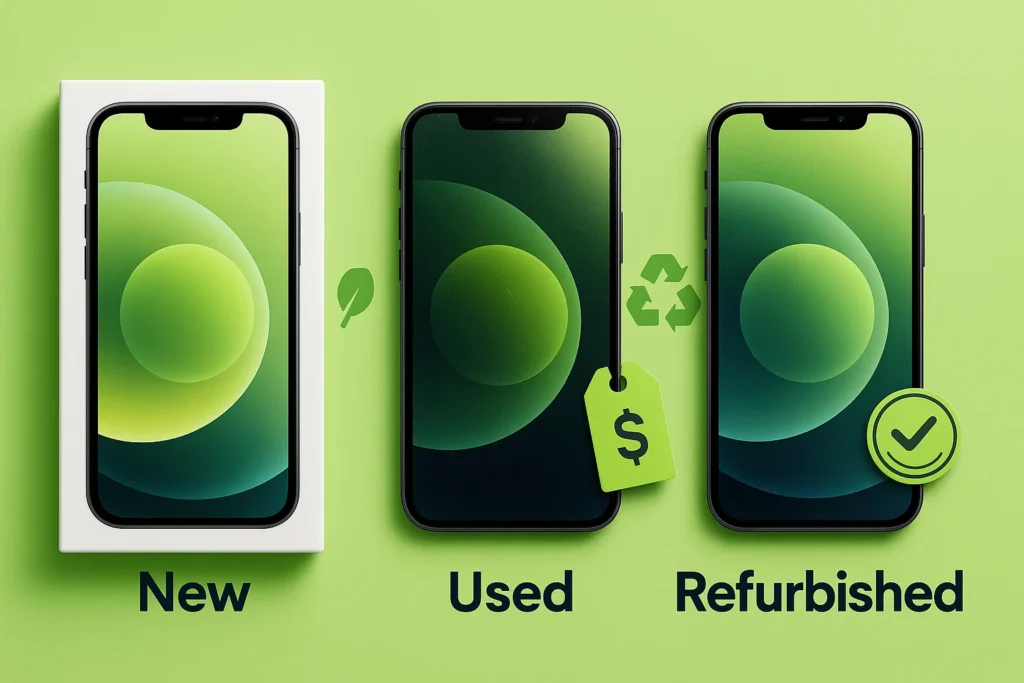
When shopping, check for:
Tip: Ask for a report or certificate like the ones provided by Cyculus that show full functional and cosmetic test results. Understanding the refurbished phones definition will help in making informed decisions.
A refurbished phone is more than just a used device—it’s a tested, certified, and reliable product that helps save money and reduce e-waste. Whether you’re an individual shopper or a business managing device returns, refurbished phones are a smart step toward sustainable tech use. Keep the refurbished phones definition in mind to appreciate their true value.
Want to learn more about how AI and automation are redefining refurbished phones?
Explore cyculus.com – the future of high-quality, precision-graded mobile devices.
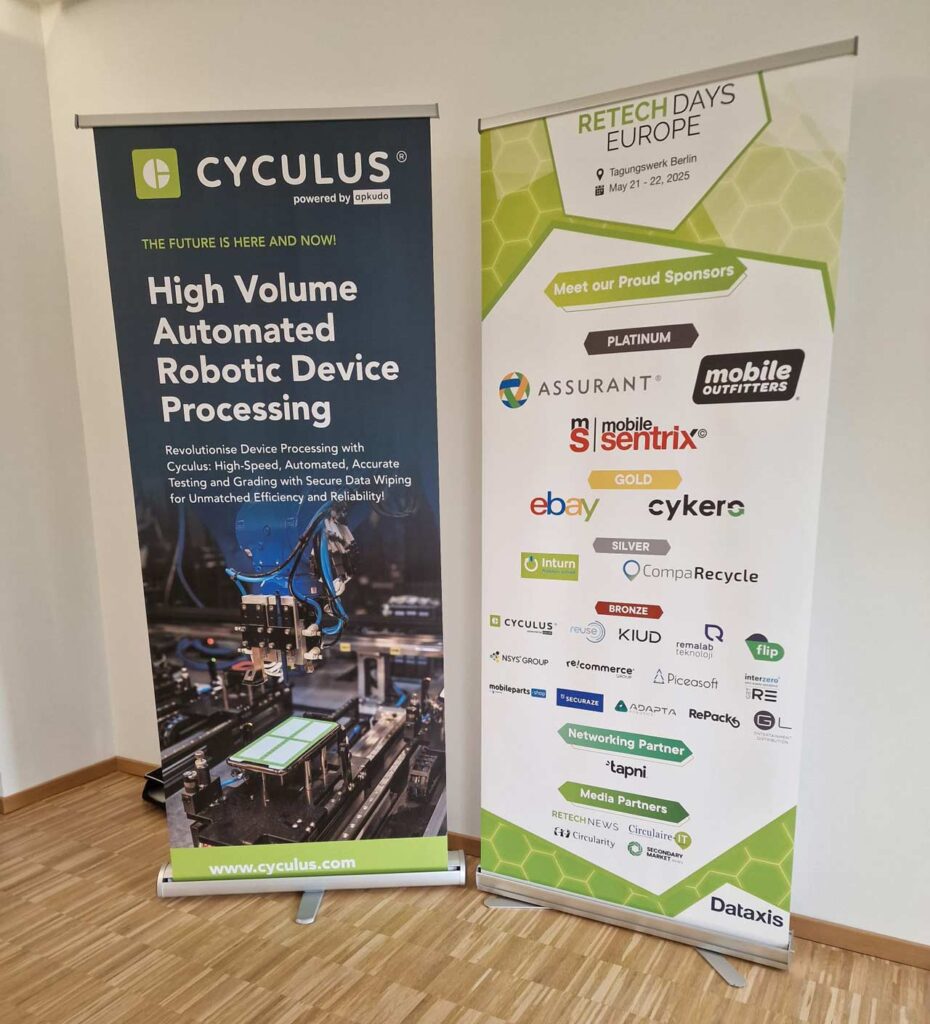
Cyculus proudly took part in Retech Days Europe 2025, joining industry leaders in Berlin to champion the future of the circular economy through automation, innovation, and collaboration. The event brought together top voices in refurbishment, repair, and resale, offering a dynamic stage for exchange, insight, and real progress.
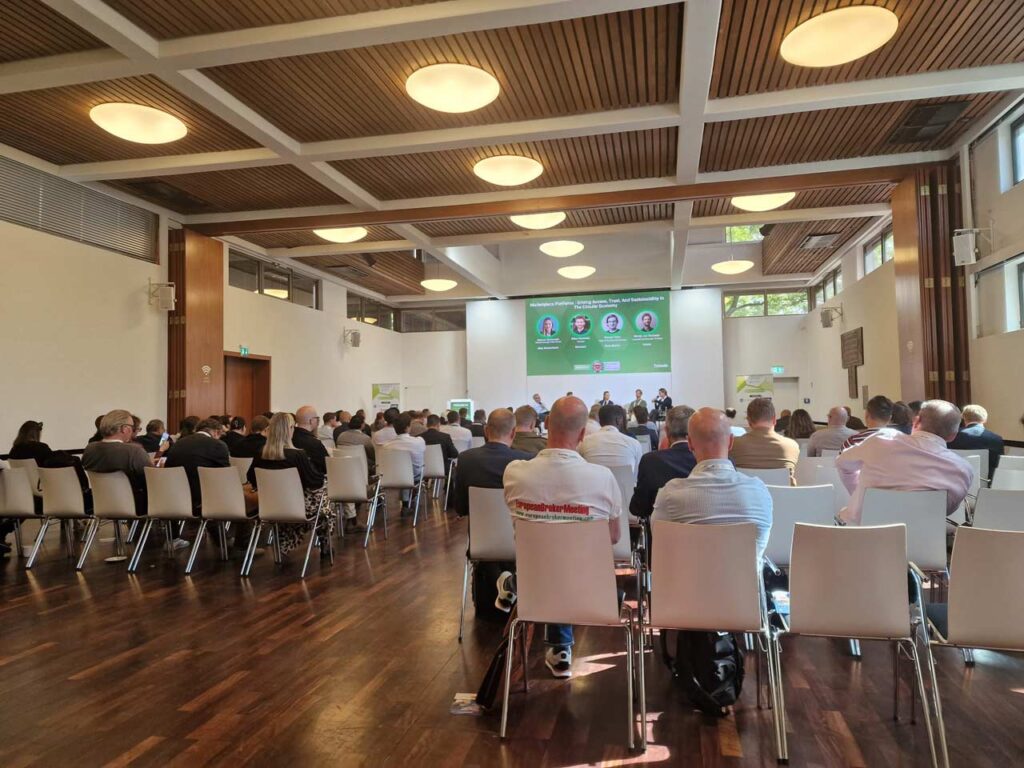
At the heart of the event, our CEO and co-founder, Fergal Donovan, delivered a workshop highlighting the transformative power of AI and robotics in the mobile device lifecycle. With growing pressure on sustainability and rising volumes of used electronics, Fergal laid out the case for Device Processing as a Service (DPaaS), powered by Apkudo, as a scalable and accessible solution for Europe’s fragmented market.
“At Cyculus, we believe automation should be accessible to everyone—not just the big players. Our goal is to democratise high-precision grading and processing, giving smaller businesses the tools they need to thrive in the circular economy,” said Fergal Donovan, CEO of Cyculus Services GmbH.
Throughout the two-day event, we engaged in vital conversations with sustainability pioneers, circular economy experts, and key decision-makers in mobile tech. The interest in automation was clear, and we’re excited to continue building relationships that drive forward-thinking solutions for Europe’s secondary market.
🙏 A huge thank you to the Retech Days organisers and the team at Dataxis for creating such a valuable forum and platform for progress in the repair, refurbishment, and resale ecosystem. We were honoured to be part of it.
👋 See you all next year!
#CircularEconomy #DeviceProcessing #Automation #DPaaS #Sustainability #Cyculus #RetechDaysEurope #Refurbishment #Apkudo #GradingAutomation

At Cyculus, we don’t just keep pace with change — we work to lead it.
Today, we’re proud to share that Cyculus is now an official member of EUREFAS, the European Refurbishment Association.
This move marks an important step in our mission to advance circular and sustainable technology practices, drive innovation, and elevate quality standards in the secondary device market. Through Eurefas, we’re connecting with like-minded leaders to help shape the future of circular electronics across Europe.
We see EUREFAS as a strategic platform to collaborate, advocate, and drive positive impact. Here’s what being part of this network means for Cyculus:
1. Advocacy and Representation
EUREFASu represents the collective voice of Europe’s refurbishment industry.
Joining gives Cyculus a chance to actively participate in policy discussions and champion forward-thinking standards that reflect the values of quality, transparency, and sustainability.
2. Setting and Raising Quality Standards
True innovation demands excellence.
Eurefas helps define quality benchmarks for refurbished products — reinforcing Cyculus’ commitment to delivering high-quality, trusted, and certified device processing services.
3. Networking and Collaboration
Innovation flourishes through collaboration.
As part of EUREFAS, Cyculus has direct access to a dynamic network of industry leaders, creating new opportunities for partnerships, knowledge-sharing, and driving best practices forward.
4. Policy Influence
We believe in shaping the future, not waiting for it.
Through EUREFAS, Cyculus can help influence critical legislation and standards that support the circular economy and the growth of sustainable mobile technology across Europe.
5. Sustainability and Circular Economy Leadership
Sustainability is hardwired into everything we do.
Joining EUREFAS amplifies our mission to extend device life, reduce waste, and build smarter supply chains — accelerating progress towards a truly circular economy.
6. Greater Visibility Across Europe
Membership with EUREFAS strengthens Cyculus’ position as a trusted, independent processor, offering new opportunities to reach customers and partners who share our vision for sustainable growth.
“Joining EUREFAS is a natural step for Cyculus. We are proud to stand alongside other leaders who believe that sustainable practices and innovation can — and must — go hand in hand. Together, we can help shape the next chapter for the circular economy in Europe.”
– Fergal Donovan, CEO, Cyculus Services GmbH
Becoming part of EUREFAS isn’t just about strengthening our own position.
It’s about working together to build a future where technology, sustainability, and business growth align — where circular practices aren’t the exception, but the expectation.
We’re excited to contribute to EUREFAS’ work and to continue pushing boundaries in the refurbishment and device processing space.
The future of circular electronics is here — and Cyculus is proud to be helping shape it. #CircularEconomy